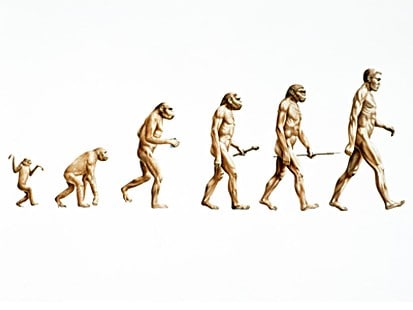 Homo economicus has been a staple of economic and philosophical thinking since John Stuart Mill coined the term in the 19th Century. It states that human beings are rational beasts that will do all it takes to achieve personal gain. As Mill himself says:
Homo economicus has been a staple of economic and philosophical thinking since John Stuart Mill coined the term in the 19th Century. It states that human beings are rational beasts that will do all it takes to achieve personal gain. As Mill himself says:
It is concerned with him solely as a being who desires to possess wealth, and who is capable of judging the comparative efficacy of means for obtaining that end.
Such thinking has dominated public policy for much of the 20th Century. Game theory applied a huge element of doubt to the notion of homo economicus however through tests such as the Ultimatum Game.
The Ultimatum Game is a very simple concept. Two players have $10 (or some other sum) to divide between themselves. Player 1 makes an offer to player 2 for how much they should each get. If player 2 accepts the offer they both get those amounts. If player 2 rejects the offer however both walk away with nothing.
The law of homo economicus suggests that player 2 should accept any offer they receive, seeing as they entered the game with nothing, even 1p would make them better off. Of course the game proves that this doesn't happen and that a sense of fairness dictates the kind of offers that are accepted. The game has been played many times in many different cultures, and the outcome is pretty universal. Fair offers, ie of an approximate 50/50 split, are accepted, whereas offers of 20% and under are roundly rejected.
Now game theory suggests that a tit for tat approach to collaboration is best because it gives us a chance to punish those who abuse our well intentioned approach to collaboration by no longer collaborating with that person. The Ultimatum Game suggests however that we decide to punish people even if we are unlikely to see them again.
Which brings me to a variant of the Ultimatum Game called the Dictator Game. It's not a game in the truest sense of the word because player 2 doesn't really participate. In the Dictator Game player 1 tells player 2 how much they are going to receive. Whilst one might expect player 1 to take all of the money, results show that they do continue to give some of it to player 2, but not as much as they would under the Ultimatum Game. They typically give up around 20%, ie a figure that would ordinarily have seen both players walk away with nothing.
What interests me is the difference between the two and how these games are played out in real life. You see for tit for tat to work there need to be mechanisms with which they can punish people who don't behave how they want by not collaborating again. If that basic premise does not exist then player 2 is considerably worse off.
Now think about government. There is a lot of debate at the moment about whether competition and choice should be provided for things like healthcare and even policing. A traditional government/citizen relationship is more akin to the Dictator Game as voters only get a chance to 'punish' politicians infrequently. As you can see from the Dictator Game, recipients in such a game get a raw deal.
In a market by contrast, providing there is lots of choice the player 2 could punish the poor company by shopping elsewhere. As we've seen this basic tit for tat premise suggests that player 2 will get a much better deal.
Now it should be said here that the player 1's in both versions of the game are not inherently different people. Those in the Dictator game are not evil and selfish souls, just as people working in the private sector aren't evil and their public sector counterparts virtuous.
In the book Connected, the authors, Nicholas Christakis and James Fowler, use the term homo dictyus, or 'network man' to describe how our increasingly interconnected world can lead to better outcomes for everyone. Such a connected world relies on choice and collaboration. I wrote recently about my reasons why we have yet to see a Twitter election, and until we get this level of choice and collaboration in our public sector we will continue to get a raw deal.
Interesting. I wonder though if with social media and all that whether we're becoming less connected to people local to us. We seem to interact far more with people from miles away than we do with the people close to us. That can't be good for society?